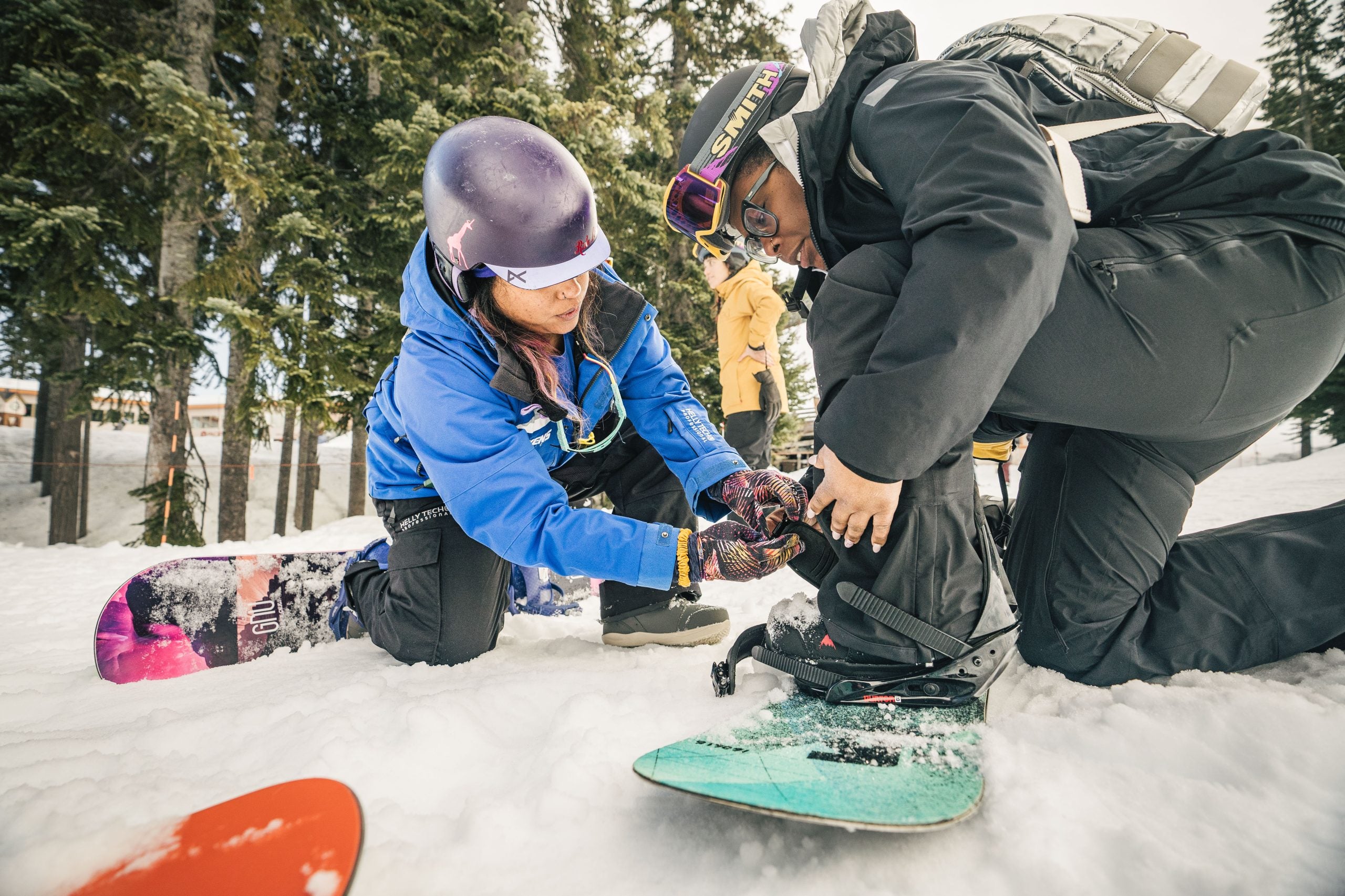
“Girl, why are you sliding down the mountains? That’s for white people.”
Annette Diggs has heard it all when she talks to her family in Tennessee. She gets it. It’s uncommon to find skiers or snowboarders coming from Memphis, and you certainly don’t see Black ones. But the microbologist couldn’t resist exploring the beauties of Northwest Washington when she moved there in 2013. She lives in Bothell, about 30 minutes from Seattle, and started traversing the outdoors of the Pacific Northwest, which is frequented by skiers and snowboarders. She picked up her first pair of poles at the age of 30 and ever since, has made it her mission to see more snow sport lovers who look like her.
“It’s a very white male-dominated sport. You can see that. It’s evident from just walking onto a ski resort, to the instructor that you get. Nine times out of 10 it’s going to be a white male and so it’s important that we invest in women of color. We don’t see them on the hills as much,” Diggs tells ESSENCE.
She is the founder and CEO of EDGE Outdoors, a non-profit created in 2019 that aims to eliminate the invisibility of Black, indigenous women of color (BIWOC) in snow sports. From who’s on the slopes to instructors, employees and athletes, as Diggs details, “It’s important that we invest in them, because they are a segment of the population that we don’t see enough on the mountain. We have people who have been skiing for like 20, 30 or 40 years that have never skied with a group of Black women before or a group of people of color.”

Annette Diggs’ experience with the lack of diversity in mountain spaces, led her to become a ski instructor in 2018. Photo credit: Parker Tikson
Women of color are more than a minority in winter sports, they’re barely seen or heard. Recent statistics show nine out of 10 ski resort participants are white and 63 percent are male.
“There are a multitude of barriers that are keeping people of color out of mountain spaces, including the alarming entry cost,” Diggs says. “To even try the sport, you’re looking at investing anywhere from $600 to $1,000 dollars.”
And then there are barriers that involve racism. Ski resorts are a familiar sector stained with instances of exclusionary practices. “It was based on pushing Black and indigenous people out of mountain spaces. The success of the ski industry is built on white supremacy and patriarchy for white men,” she notes. “What EDGE is trying to do is counteract that and welcome people back onto the mountain, especially women of color, and give them a safe space where they can thrive.”
EDGE Outdoors serves women of color above the age of 18. The organization has a “learn to ski and snowboard” program, avalanche training program and athlete development program to name a few. Participants can apply for scholarships, which will cover mountain access, free formal lessons and rental gear. And there are sustainable pathways the non-profit offers to help participants continue taking part in skiing and snowboarding beyond initial lessons.

EDGE Outdoor participants cheer each other on during a ski lesson. Photo credit Adam J Sanders
“It should be normal for this demographic to thrive in mountain spaces, just like it should be normal for a Black man to jog in his neighborhood in Georgia, but it’s not,” she says, referencing Ahmaud Arbery. “We’re trying to create that normalcy for women of color, or anybody of color, to come and enjoy mountain spaces.”
Edge isn’t just about introducing people to snow sports though. Diggs’s non-profit seeks to change the landscape and groom a path where people of color are not just enjoying slopes, but leading training as instructors, being employed at resorts and competing in the amateur and professional realms. An athlete development program is launching Summer 2023 at Mt. Hood in Oregon. People can also train to become an instructor and learn how to navigate the unmarked areas on resorts, known as backcountry skiing.
The goal is generational acceptance. Like a detailed course that traverses through various mountain ranges, Diggs knows this is a complicated and exhaustive feat. Nevertheless, she and her team are in it for the long haul. “We want to get to the place where when people close their eyes and imagine what a skier or rider looks like, they’re not just going to think of a white person, they’re going to think about everyone, including women of color.”
You can support by donating to the agency, as well as liking and sharing social media posts with their connections.